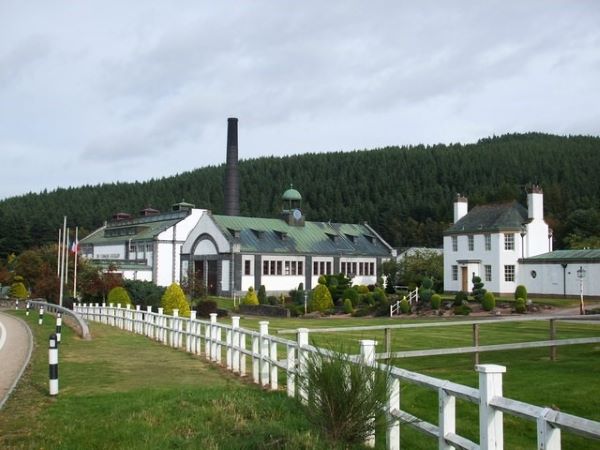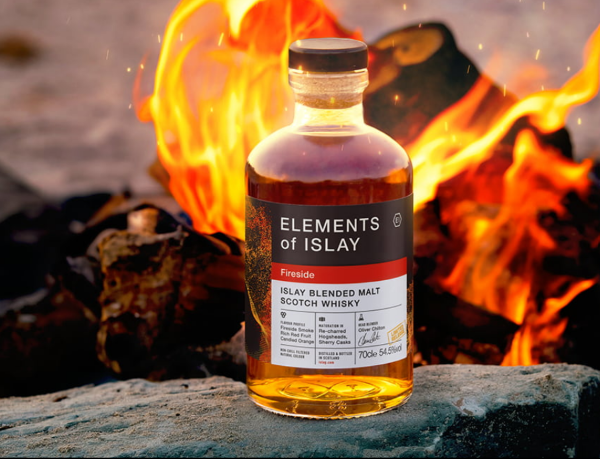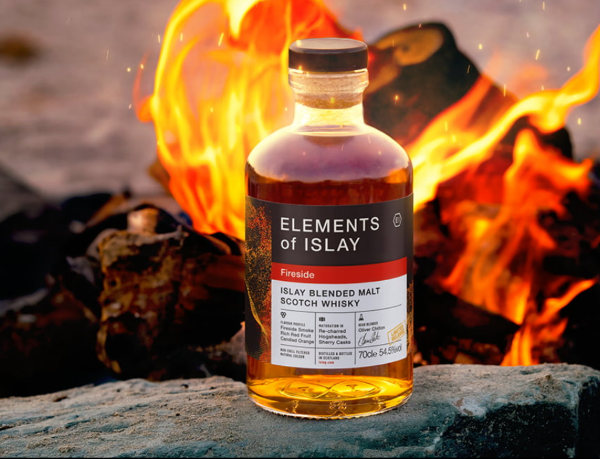A Dram with Sukhinder Singh
One of the smartest entrepreneurs in whisky, Sukhinder Singh has built an impressive business under his Elixir brand as an independent bottler and distiller. Over a 'dram' with Ian Fraser, he shares some of his concerns about the big players who dominate the industry …
Sukhinder Singh and his younger brother Rajbir are on a roll at the moment. Having sold the Whisky Exchange to Pernod Ricard in 2021 for up to £429 million according to one drinks analyst, their London-based Elixir Group Holdings is growing fast, buying a distillery in Speyside three years ago and poised to open a significant new distillery on Islay.

In February, Sukhinder, 56, was named as IWSC 'industry champion', a role formerly known as 'honorary president'. He says he was touched to receive the honour – which has previously been held by the likes of Sir Ian Good, Sir Tony Greener, Michael Urquhart, Dr Anton Rupert and Jose Ignacio Domecq. He was appointed a Master of the Quaich in April 2018.
Over a metaphorical dram, Sukhinder, who is famed for his personal collection of old and rare single malts, expresses concern about the recent direction of the Scotch whisky industry.
"The industry had it too good for too long. The last 20-plus years have just been an upward trajectory, and nobody believed it would ever end – which is why so many distilleries have been doubling their capacity. I think the current correction was needed, because an element of greed had crept in. People need to revise their pricing and just wake up and say, 'you know what, let's make it fair'."
In the 20-year bull market for Scotch, he believes some distillers became so obsessed with fancy packaging and the pursuit of luxury, they neglected the quality of their liquid. "The big guys see their products as commodities. The love – in terms of attention to detail – has gone. What makes a good distiller, for me, is stability. And sadly, the big companies have a policy of moving people around every three or four years."
"I believe that a lot of people have forgotten how to make good clean whisky because they're desperate to innovate. Everyone is going down the sherried route, thinking that will command a premium, which means every whisky on the market is getting heavier, bigger and richer. I think a lot of companies have simply forgotten how to make good, clean, honest, whisky."

However, Sukhinder does not see the situation as hopeless. "I think it actually creates an opportunity. The people who care will be the ones who succeed in this environment." He reels off the names of distillers who he believes are doing "a really good job" and will thrive – including Ardnamurchan, Torabhaig, Isle of Harris, Isle of Raasay, adding their teams "understand that whisky needs time, dedication and investment".
He predicts a fairly drastic shakeout among smaller, more recently-opened distilleries, some of whose founders he believes went into the industry for the wrong reasons. "I'm getting a call every couple of weeks from someone saying 'are you interested in having a look at this distillery,' – to help out or take it over because it's in financial difficulties". He hasn't yet been tempted, largely because his hands are full with Tormore on Speyside, Islay's Portintruin, Elixir's established independent bottling business – whose brands include Port Askaig and Elements of Islay, the Single Malts of Scotland range and other activities.
For Sukhinder, another danger facing Scotch is the rise of good quality single malts from elsewhere where younger consumers are choosing to buy local for environmental reasons rather than something that has been shipped halfway around the world. He claims the likes of Diageo are "running scared" of whiskies produced in countries such as India, Taiwan, Sweden, France and Germany. "If they weren't scared, they wouldn't be buying and building distilleries in many of these countries."
Closer to home however, he describes English whisky as a "missed opportunity" so far, and cannot understand why distillers there haven't been more adventurous in how they make their whiskies, since they are less constrained than the Scots when it comes to ingredients. He doesn't believe there's much mileage in rye whiskies which he argues will remain pretty niche.
He confirms that Portintruan, still under construction on a site between Diageo's Port Ellen and Beam Suntory's Laphroaig, will have an annual production capacity of around one million litres of pure alcohol (LPA) when it opens in the not too distant future. However, he concedes progress was set back by "two and a half to three months" after the main contractor, ISG, went into administration in September. Unfazed, Sukhinder is determined to get back to basics at Portintruan – where Elixir will reintroduce traditional floor maltings and direct fired stills.

"I'm a fanatical about old and rare whisky. We are trying to understand and emulate the taste of whisky from yesteryear – basically from the 1980s and before. For me, everything's about liquid, liquid, liquid."
Tormore, which Elixir bought from Pernod Ricard in June 2022, is an early 1960s Speyside distillery located 10 miles downstream from Grantown-on-Spey. Having formerly provided spirit for Long John, it currently has an annual production capacity of 3.2m LPA. Sukhinder believes the fact "nobody knows the liquid" (even today, the vast majority of the distillery's output goes into top-selling Pernod blends like Ballantine's and Chivas Regal) will be an advantage when Tormore single malt hits the shelves within a year to 15 months. "We've been working on the liquid and assessing our stock over the last year and a half. We're over the moon, honestly."
Elixir has also snapped up the 5,791-acre Glenlochy estate adjacent to the distillery and renamed it the Tormore Estate. The brothers, who started out helping their parents run 'The Nest', a notable off-licence in Hanwell, West London, don't intend to get into plus-fours or start shooting grouse any time soon. Instead, Sukhinder says they are looking to rewild the landscape. "We also have this ambition to open a couple of restaurants, one on Islay, one on Speyside with all the produce coming from the estate." Raj, 52, who is in charge of Elixir's back-office operations, has taken charge of reversing the damage and nature depletion caused by decades of field sports, with guidance from the Cairngorms National Park.

Ian Fraser is a financial journalist, a former business editor of Sunday Times Scotland, and author of Shredded: Inside RBS The Bank That Broke Britain.
